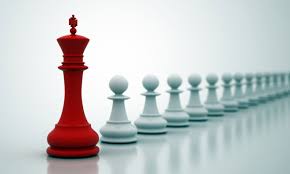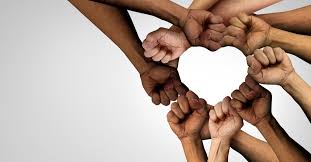

Let’s Change The World
This is an article about the democratisation of humanity.
The Democratisation of Humanity in a Troubling World of Dichotomies
As we navigate the turbulent waters of our global reality, we are constantly faced with a troubling world of dichotomies. On one side, we see the rise of new economic powers like BRICS (Brazil, Russia, India, China, and South Africa), which challenge the traditional dominance of Western economies—particularly the United States and Europe—that have, for so long, controlled global finance, trade, and governance. On the other side, we witness the slow decline of those Western powers, weakened by internal divisions, growing debt, and a crisis of leadership.
In this context, the idea of the democratisation of humanity takes on even greater significance. It represents a vision of the future where all nations—regardless of their economic or political systems—share in the wealth, opportunities, and prosperity that human effort creates. But to achieve this, we must confront the contradictions that currently define our world, from rising inequality to the shifting balance of global power.
The Dichotomy of Rising Powers: BRICS vs. the West
We are witnessing a profound shift in global power. BRICS nations are on the rise, reshaping the global economic order and challenging the dominance of the West. For decades, Western economies have dictated the rules of the global financial system, often at the expense of developing countries. This system, built on a foundation of colonialism, unfair trade practices, and economic control, kept much of the world in a state of dependency.
But now, BRICS is asserting its influence, promoting a multipolar world where power is more evenly distributed. The rise of China and India as economic giants, the geopolitical influence of Russia, the energy wealth of Brazil and South Africa, are fundamentally reshaping the global order. BRICS is no longer content to play by the old rules of the West—it is actively creating alternative systems, like the New Development Bank and China’s Belt and Road Initiative, to bypass Western-dominated financial structures.
For BRICS, this is an opportunity to lead the way toward a world where nations are less dependent on the West, able to define their own futures, and free from the historical burdens of Western interference and control. But this rise also presents a challenge: can BRICS avoid repeating the mistakes of the West? Will these new powers simply replace one form of dominance with another, or can they promote a more equitable global system?
The Decline of the West: Economic Stagnation and Debt Dependency
Meanwhile, the Western economies that once ruled the global stage are facing their own challenges. The United States, burdened by massive national debt, political dysfunction, and growing inequality, is struggling to maintain its influence. Europe is fractured, dealing with slow growth, rising populism, and a failure to address its own internal divisions.
A key part of the West’s decline is its growing economic stagnation. For decades, Western economies relied on exploitative financial practices, outsourcing, and short-term profits, which have hollowed out their middle classes and left many citizens disillusioned. At the same time, the West has been unable to adapt to the rise of global competitors like BRICS, leaving it with a weakened position on the world stage.
The global debt crisis, particularly in the Global South, also plays a crucial role in this decline. Many developing nations remain trapped in cycles of debt dependency to Western financial institutions like the IMF and World Bank, limiting their ability to invest in infrastructure, education, and sustainable development. For these nations, the decline of the West presents both risks and opportunities: will the collapse of the old economic order lead to further instability, or will it allow them to break free from the shackles of debt and dependency?
Why Would BRICS Support the Ailing West?
Given the history of Western interference in the development of other societies, particularly through colonialism and economic exploitation, the question arises: why would BRICS, now in the ascendant, want to support the declining West? For decades, the West sought to limit the potential of emerging powers, controlling trade routes, imposing sanctions, and intervening militarily in regions like the Middle East and Africa. Now, with the boot on the other foot, BRICS nations have the leverage to reshape the global system in their favour.
Yet, despite this, the world remains deeply interconnected. The global economy is still dependent on Western markets, supply chains, and financial systems. A complete collapse of the West would cause ripple effects across the globe, disrupting trade, causing financial instability, and potentially triggering widespread social unrest.
Moreover, global challenges such as climate change, public health, and resource management require cooperation between BRICS and the West. No country or bloc, no matter how powerful, can solve these problems alone. For BRICS to lead the world into a new era, it must find a way to engage with the West—whether through partnership, competition, or a careful balancing act of both.
Political Elites, Big Business, and the Power Struggle
A major obstacle to the democratisation of humanity is the entrenched power of political elites and corporate interests in both the West and BRICS nations. In the West, political elites are mired in ideological battles and gridlock, often paralysed by partisan divisions and corruption. Big business, meanwhile, continues to prioritise short-term profits over long-term sustainability, making it difficult to enact the structural changes necessary to address economic inequality, climate change, and social unrest.
In BRICS nations, the situation is not much different. Political power in countries like Russia and China is concentrated in the hands of authoritarian regimes and oligarchic structures, where economic growth is often pursued at the expense of human rights, social equity, and environmental sustainability.
This power struggle—between entrenched elites, corporate interests, and the broader population—undermines the potential for true democratisation. If we are to democratise humanity, we must hold political and corporate elites accountable for their failure to address global challenges. A new generation of leaders is needed, one that prioritises cooperation, fairness, and long-term prosperity over narrow political or economic gain.
A Path Forward: Averting Global Disaster
The dichotomies we face—BRICS vs. the West, rising powers vs. declining hegemonies, corporate interests vs. public good—present a recipe for disaster if not addressed. Yet, within these challenges lies an opportunity for global reform. The democratisation of humanity requires bold action, both from rising powers like BRICS and from the West.
-
Global Economic Reform: We must restructure the global financial system to reduce debt dependency, promote fair trade, and support sustainable development. This will require BRICS and the West to work together, even as they compete for global influence.
-
Inclusive Global Governance: BRICS nations must be given a larger role in global institutions, while also committing to reforms that make these institutions more inclusive and transparent. This is essential to ensure that the rise of BRICS leads to greater global equity, not just a shift in power from West to East.
-
Corporate Responsibility: Both in BRICS and the West, big business must take responsibility for its role in exacerbating inequality and environmental destruction. This means adopting sustainable practices, investing in green technologies, and creating fairer labour conditions.
-
Leadership for a Shared Future: We need leaders who are willing to prioritise the long-term well-being of humanity over narrow political and economic interests. This will require a new generation of visionary leadership, capable of navigating the complexities of a changing world and promoting cooperation over conflict.
Democratising Humanity in a Troubled World
In this troubling world of dichotomies, the democratisation of humanity is not just an idealistic vision—it is a necessary goal for global survival and progress. As BRICS rises and the West struggles, the global order is being rewritten. The choices we make today—whether to cooperate or divide, to invest in humanity or in the interests of the few—will shape the world for generations to come.
If we are to avoid disaster and create a world where all nations and peoples share in the benefits of progress, we must confront these dichotomies head-on. Only by addressing economic inequality, corporate greed, political dysfunction, and historical grievances can we build a future where humanity thrives, both on Earth and beyond. The stakes are high, but the potential for a better, more democratic future is within our grasp.
The choice is ours.
Like Section
Goals & Plan Section
Then it's about figuring out how we might be able to change direction, change our politics, change how we manage money, change how we manage the economy.
Help & Support Section
Benefits Section
Listing Header Section
Tags Section
Listing Detail Section
Video Section
Location Section
Contact Info Section
Let’s Change The World 0 reviews
Write Your ReviewThere are no reviews yet.




